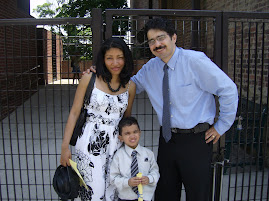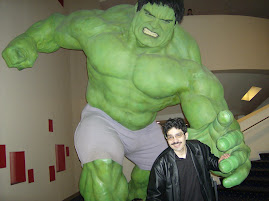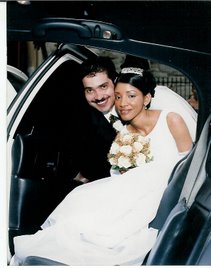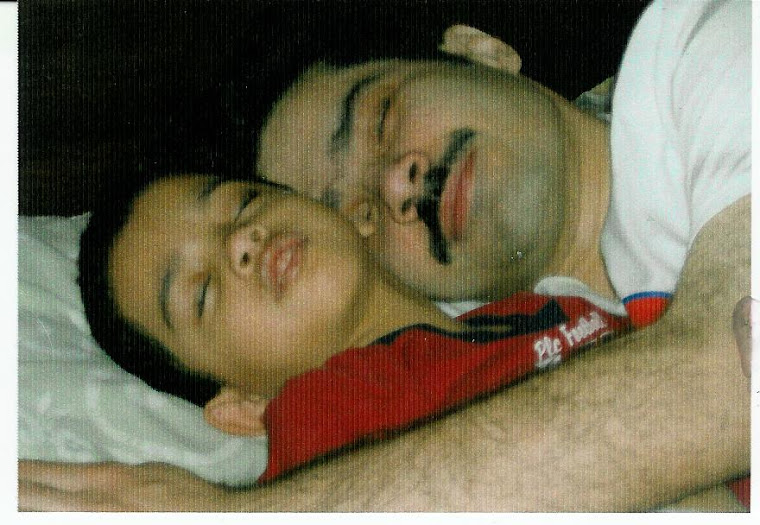
anthony bradley lightening insights(us hispanics can learn as well):
On August 9th, I was a guest on the "Morning Coffee with Tracey & Friends" program, a program for the Black community, hosted by Tracey Winbush, on WGFT - AM 1330 in Youngstown, OH, discussing a whole myriad of issues in the Black community. Tracey Winbush, an absolutely provocative radio host, and her entire group of African American “friends” offered an interesting and lively discussion (“y’all know how we do” especially when you get a bunch of us in a room talking about God!) To my surprise, I spent nearly an hour defending the existence of the Trinity. Didn’t we cover that at Nicea in 325 AD?During our conversation I came to one long conclusion: Christianity in Black America is in serious trouble. Much of it is dying, moving toward old errors and heresies while some orthodox circles are not addressing contemporary issues, and we are in desperate need for a new generation of Black theologians. Here’s why I’m worried:(1) Oneness Pentecostalism (Modalism) must be addressed directly and definitively. I still can’t believe that I was debating the Trinity on a radio program full of Black Christian folk. Even worse, very few of the callers to the show seemed to believe in the Trinity either. Modalism is a growing virus in Black churches. Modalism is an ancient theological error that denies the Trinity by arguing “that God is a single person who, throughout biblical history, has revealed Himself in three modes, or forms. Thus, God is a single person who first manifested himself in the mode of the Father in Old Testament times. At the incarnation, the mode was the Son. After Jesus' ascension, the mode is the Holy Spirit. These modes are consecutive and never simultaneous. In other words, the Father, the Son, and the Holy Spirit never all exist at the same time, only one after another. Modalism denies the distinctiveness of the three persons in the Trinity even though it retains the divinity of Christ” (Source: “Modalism,” www.carm.org).Who is teaching this heresy that God is three modes and not three persons in the Black community today? Well, their first names tend to start with the word “Bishop” and they tend to wear really nicer suits than the rest of us. This profound theological error has grown with reckless abandon in many apostolic, Pentecostal, and charismatic Black churches which seems to be an ever dominant form of conservative Christianity in Black America today.(2) The “prosperity gospel” virus is killing Christianity in Black America and destroying Black people. Often on Sundays I listen to Black gospel music on the way to church as needed therapy and I’ve started to notice, more and more, that the newer music has more to do with “getting a blessing from God,” a material one, instead of praising God for his redemptive grace shown to his people. Christianity has become a lottery system where, if you have enough faith, you can “claim” your next Lexus, your next house in a gated community, a promotion, etc., all in “the name of Jesus” and it will be granted to you because “when praises go up, blessings come down.” There are Black Christians running around worried and scared because they don’t want to “miss their blessing.” “Hey, you’d better live right, or you won’t get your blessing.”(3) Where are all the Black folks with PhDs in theology and biblical studies? You will be hard pressed to name more than five Black theologians teaching on the main campus (not a satellite extension) of the conservative evangelical seminaries in America combined. I can only think of five, and four of them are Baptist. Why is this? One reason: there are not enough Black folks completing PhDs in theology and biblical studies. Conservative evangelical seminaries are not racist but they literally don’t have much of an applicant pool to choose from when looking for Blacks (and Latinos) to teach something other than practical theology.To some extent, it is the seminaries’ fault for not raising up their own future leaders. If you’re a Black student at an evangelical seminary you are much more likely to be railroaded into “urban ministry” (where I guess, Blacks belong) than you are encouraged toward the academy. When I was in seminary one of my fellow students said to me, “Hey man, we [the whites] are so glad you’re here. We need more guys in urban ministry.” I just stood there and gave him a weird look. He apologized later. If conservative evangelical seminaries want Black professors they may need to invest ($) in “growing their own.” Also, there won’t be an influx of Blacks into evangelical seminaries until evangelical denominations and church associations have very large, all Black mega-churches. Look at what Tony Evans did for Dallas Theological Seminary.(4) The “back-to-the-old-days” theology is not enough. Like I’ve said before, attempts to turn Black Christians into a bunch of dead Dutch or Puritanical dead White guys from a by-gone era is not going to help the Black community today or in the future. There is this romantic idea that “if we could just get back to the faith of our fathers” we will live happily every after. While this is understandable it’s not nearly enough.What that statement really expresses is a rightly oriented longing for orthodoxy but that orthodoxy needs to be applied to present day problems and issues in the Black community with an ever-reforming interaction with issues in the future. Simply restating the same formulas of the past is not going to address issues like the HIV/AIDS crisis where Black women make up almost 70 percent (7,586 out of 11,859) of all new AIDS cases among women or that nearly 70 percent of all Black kids are born to single parents, for example.Since the errors and heresies of old still pop up, like in the case of modalism, historical theology is vital for growing a vibrant progressive church because the Enemy, Satan, continues to introduce the tired confusions of the past among God’s people and these errors need to be addressed (again and again). Black folk writing Christian books for the Black community that are not directed at the current issues in Black community in the 21st century are not helping “Tanisha, Mookie, and ‘dem” apply the gospel and kingdom here and now.(5) Will evangelical publishers risk reaching Black folks? Some might argue that one of the key signs that some of the major evangelical presses are void of Blacks (and Latinos) in editorial positions is that there is very little activity directed at trying to capture the Black Christian market. Please forgive me for thinking economically for one moment.If I could get all of the decision-makers at evangelical presses in one room I would remind them of this:• In 2006, the Selig Center estimated African Americans to have $852.8 billion USD in purchasing power, as a country African Americans would be the 18th wealthiest nation.• There are approximately 46,000 predominantly African American Christian congregations.• 86% of African American Christians belong to historically Black denominations.• 8% of African American Christians belong to mainline "majority" white denominations.• 43% of African Americans attend church on a given Sunday.• The average African American congregation has an average attendance that is 50% greater than that of the average white church.• 63% of African American parishioners believe the pastor is the most important leader in the African American community.Translation: Whoever publishes forward thinking, progressive books directed at actual Black readers—even beyond the eight percent Black evangelical choir—will increase their market share across more sectors of world Christianity. The key to the longevity of any business is flexibility and diversification. This is why General Electric makes microwaves, airplane engines, and has an asset management division. Publishers who have all of their eggs in the White evangelical basket will face a future of declining sales and market share in a worldwide Christianity that is predominantly brown, tan, and yellow.There are more issues that aren’t listed here for sure. However, I’m simply arguing that Christianity in Black America in the future may range from unrecognizable to completely dead in relationship to historic, orthodox Christianity if: theological error is not ushered out by studied church leaders, applications are not made to current realities directly and if Black leaders are not given a platform to bring the historic truths of Christianity to Black communities everywhere.Who’s thinking, writing and publishing for the 46,000 congregations?










No comments:
Post a Comment